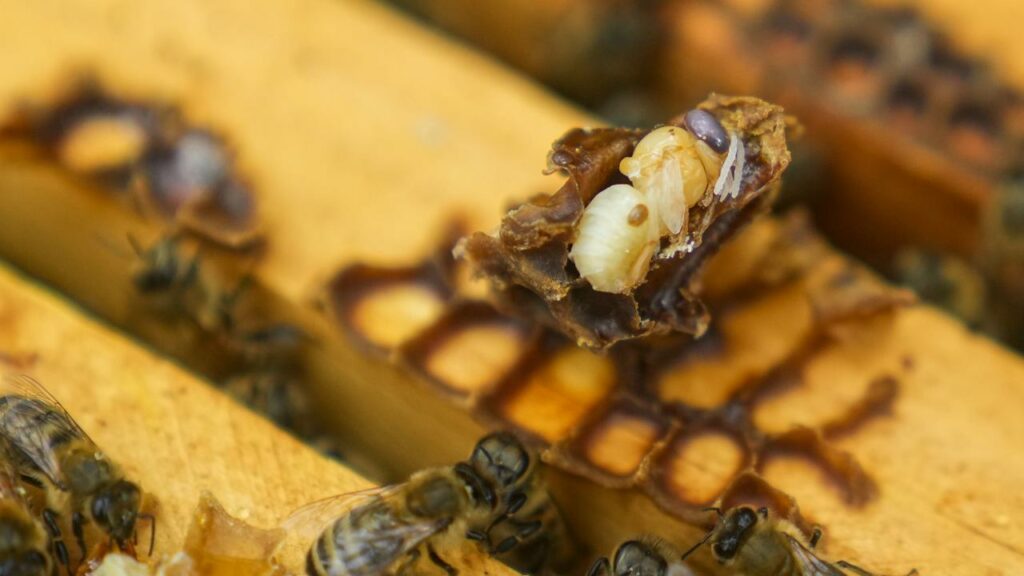‘Out of control’ varroa won’t be eradicated: beekeepers
Liv Casben |

The varroa mite is out of control and eradication plans should be abandoned according to some in the honeybee industry.
The deadly mite was first detected near the Port of Newcastle in June 2022, leading to more than 25,000 hives being destroyed over a 13-month period as authorities tried to halt its spread.
No other country in the world has been able to eradicate the parasite, which feeds on both adult bees and their larvae.
President of the Crop Pollination Association of Australia, Steve Fuller, said there have been too many new detections in recent months.
“It’s getting to the point it’s daily and up to ten places at a time,” he told AAP.
“Every country has lived with varroa, it means a lot more work for beekeepers but it’s something that we’ve got to accept.”
The call came after the discovery of the varroa mite in September at Barcoongere north of Coffs Harbour, as well as more detections in the Kempsey, Riverina and Sunraysia region of NSW close to the Victorian border.
Mr Fuller told AAP that turning to a management plan will ease pressure on the industry, with pollinators having to wait days for permits before they can move their bees.
“I would rather live with it (varroa) than lose my industry.”
Neil Bingley from NSW Apiarists’ Association said beekeepers will have to learn to live with varroa mite.
“We didn’t want the mite, but it’s inevitable now,” he said.
NSW Nationals leader Dugald Saunders has described the situation as “out of control” and wants the NSW government to abandon the eradication plan.
“With infected premises popping up rapidly and in widespread parts of the state, the government can’t afford to keep waiting and hoping that something is going to get better, because it won’t,” he said.
A spokesperson for NSW Agriculture Minister Tara Moriarty said the varroa response is a national plan informed by 16 industry partners including the Commonwealth and the states, and it will be up to that group to decide.
There have been no detections of the mite in Victoria according to Agriculture Victoria, while restrictions remain in place on hive movements into that state.
Victoria’s Chief Plant Health Officer Dr Rosa Crnov said operations have ramped up since August when there were detections at Euston and Balranald near the Victorian border.
AAP